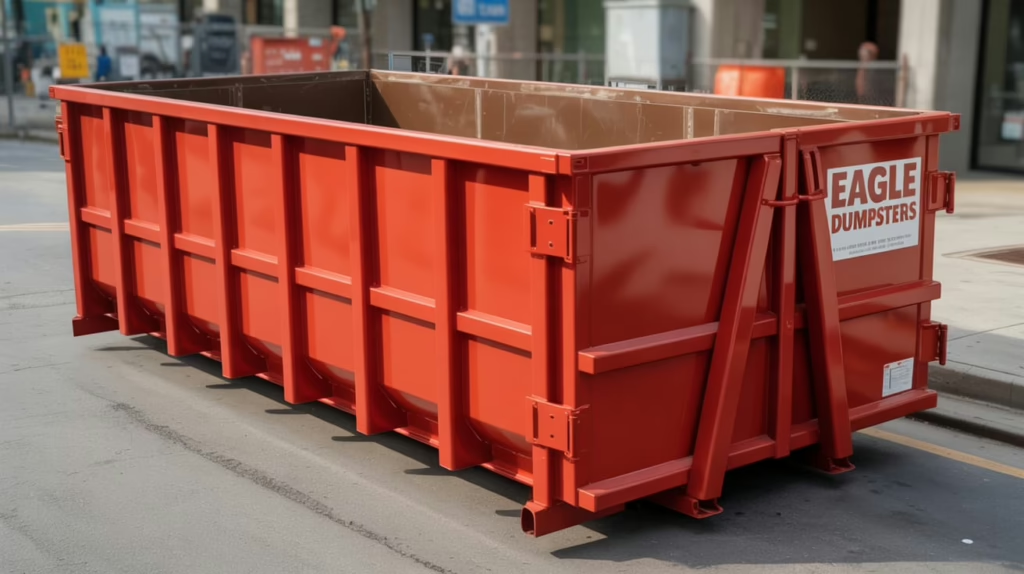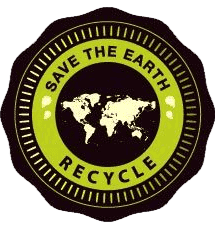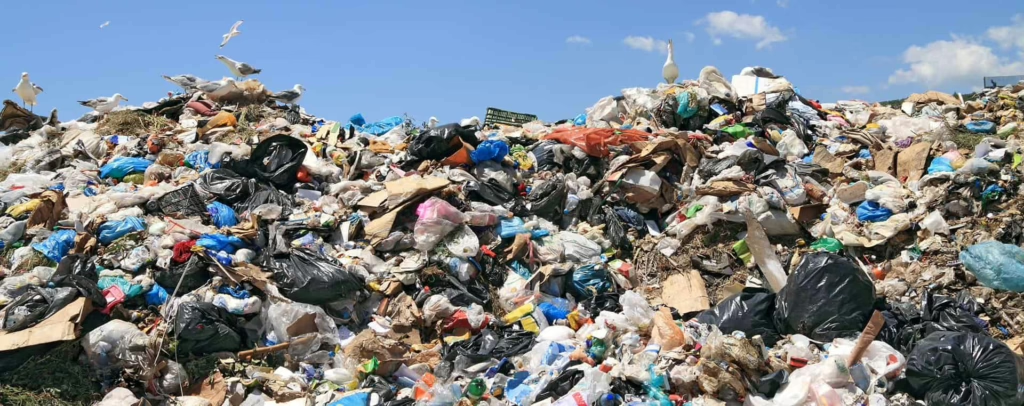 Garbage, trash, rubbish, junk; there are many names for it, but it’s all waste that your home or your business does not need anymore. Sometimes it arrives in one go and you have more than you know what to do with; be it from downsizing or a change around at home, or inheriting furniture from a loved one. However, much of the time, waste builds up slowly over time. It seems too difficult to deal with as it mounts and you end up just living with it. This article covers 9 ways overflowing waste is not a good idea and lets you know what you should do instead – the primary is to get a dumpster rental.
Garbage, trash, rubbish, junk; there are many names for it, but it’s all waste that your home or your business does not need anymore. Sometimes it arrives in one go and you have more than you know what to do with; be it from downsizing or a change around at home, or inheriting furniture from a loved one. However, much of the time, waste builds up slowly over time. It seems too difficult to deal with as it mounts and you end up just living with it. This article covers 9 ways overflowing waste is not a good idea and lets you know what you should do instead – the primary is to get a dumpster rental.
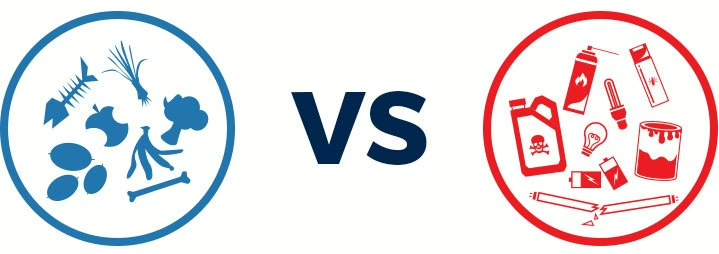
Organic vs. Inorganic Waste
Before we take a look at 8 ways too much household waste can affect the local environment and your family’s health, it’s important to note that different types of waste affect both in different ways. It might seem obvious, but it’s worth pointing out from the get go that dumpsters for rent in Delaware County is the best way to rid of large volumes of trash. Organic waste decays and breaks apart. Eventually it goes back to being part of the earth, but in the meantime, it’s ripe for diseases, infections, and attracting the wrong kind of wildlife to your home. Inorganic waste might just sit there, but it can also break down into toxic materials, it can pollute land and water, and it become dangerous to interact with. Both should be dealt with.
Dispersal by the Elements
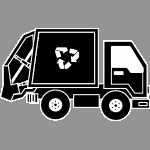 All of the above are consequences of static waste, which sits beside a house, in the garden or yard, or in a garage. It is not stable and it is affected by the elements. While most of it will stay where it’s put, and while a good proportion is sent to landfill or recycling, a large amount is spread around the planet by the wind, by water, by us humans, or by animals in the area. Any waste which is spread has the potential to damage the health of individual animals, other people, and whole ecosystems. This is accidental dispersal. However, an estimated 14 billion pounds of trash is dumped in our oceans every year with catastrophic consequences.
All of the above are consequences of static waste, which sits beside a house, in the garden or yard, or in a garage. It is not stable and it is affected by the elements. While most of it will stay where it’s put, and while a good proportion is sent to landfill or recycling, a large amount is spread around the planet by the wind, by water, by us humans, or by animals in the area. Any waste which is spread has the potential to damage the health of individual animals, other people, and whole ecosystems. This is accidental dispersal. However, an estimated 14 billion pounds of trash is dumped in our oceans every year with catastrophic consequences.
Water Contamination
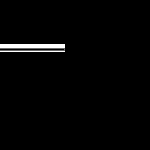 Water is easily contaminated at the surface level. Much drinking water is taken from lower down or is recycled from our rivers. Table water is harder to affect as it sits deeper in the ground, however surface water can be affected by several means. This can include trash being dumped into water, chemicals leaching out into the water (see leachate below), or run off rainwater passing through trash on its way down a hill and into a watercourse. Water pollution affects the whole ecosystem the water supports from plants to fish, to any animal drinking from it or interacting with it. This can also aid the spreading of diseases.
Water is easily contaminated at the surface level. Much drinking water is taken from lower down or is recycled from our rivers. Table water is harder to affect as it sits deeper in the ground, however surface water can be affected by several means. This can include trash being dumped into water, chemicals leaching out into the water (see leachate below), or run off rainwater passing through trash on its way down a hill and into a watercourse. Water pollution affects the whole ecosystem the water supports from plants to fish, to any animal drinking from it or interacting with it. This can also aid the spreading of diseases.
Creation of Leachate
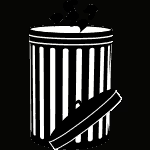 Leachate is the formation of liquids secreted by garbage, both organic and inorganic in origin, which form together to create a harmful mixture of toxic substances and chemicals. These can directly affect those who come into contact with it including animals, or they can enter the main watercourse, drainage systems, or leak into nearby soil causing the previously mentioned contaminations.
Leachate is the formation of liquids secreted by garbage, both organic and inorganic in origin, which form together to create a harmful mixture of toxic substances and chemicals. These can directly affect those who come into contact with it including animals, or they can enter the main watercourse, drainage systems, or leak into nearby soil causing the previously mentioned contaminations.
Air Pollution
 Decomposition and the breakdown of all materials at a microbiological level, creates more than just soil or water pollution. Garbage stinks because airborne particles are released into the air as well. These are easily inhaled and can cause infections, diseases and lung damage too. The extent to the damage depends on the materials being stored.
Decomposition and the breakdown of all materials at a microbiological level, creates more than just soil or water pollution. Garbage stinks because airborne particles are released into the air as well. These are easily inhaled and can cause infections, diseases and lung damage too. The extent to the damage depends on the materials being stored.
Attracts Vermin and Insects
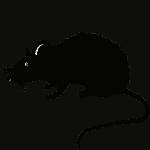 Decomposing organic material attracts a wide range of animals. This includes vermin such as rats,but also foxes and other animals which can disperse your garbage over a wider area. Furthermore, it attracts insects which are vital to breaking down organic material, but also which help spread infectious diseases. A large pile of rotting organic material, especially that which is not safely composted, provides a real health risk to you and anyone living nearby.
Decomposing organic material attracts a wide range of animals. This includes vermin such as rats,but also foxes and other animals which can disperse your garbage over a wider area. Furthermore, it attracts insects which are vital to breaking down organic material, but also which help spread infectious diseases. A large pile of rotting organic material, especially that which is not safely composted, provides a real health risk to you and anyone living nearby.
Spread of Diseases
 Solid waste decomposes and ferments, creating the perfect environments for microbiological pathogens. Handling or ingestion of these materials makes the spread of diseases more likely and this is true also, as mentioned above, of contaminated soils and water too. Garbage is connected to diseases such as gastroenteritis, malaria, typhoid, cholera, as well as stomach pains, vomiting, and chronic diarrhea.
Solid waste decomposes and ferments, creating the perfect environments for microbiological pathogens. Handling or ingestion of these materials makes the spread of diseases more likely and this is true also, as mentioned above, of contaminated soils and water too. Garbage is connected to diseases such as gastroenteritis, malaria, typhoid, cholera, as well as stomach pains, vomiting, and chronic diarrhea.
Poor Mental Health
 Inadequate living conditions including high levels of waste, poor water supplies, and sanitation have been linked to higher than average levels of mental health problems among resident populations. The most commonly associated mental health issue is depression, but poor living conditions can also cause anxiety and stress.
Inadequate living conditions including high levels of waste, poor water supplies, and sanitation have been linked to higher than average levels of mental health problems among resident populations. The most commonly associated mental health issue is depression, but poor living conditions can also cause anxiety and stress.
Municipal Wellbeing
 A settlement of any size which is characterized by pollution, smelly trash, and unclean residential areas is not attractive to new and existing residents, to investors and businesses, or to tourists. Such cities also tend to have lower living standards and higher crime rates.
A settlement of any size which is characterized by pollution, smelly trash, and unclean residential areas is not attractive to new and existing residents, to investors and businesses, or to tourists. Such cities also tend to have lower living standards and higher crime rates.
Soil Contamination
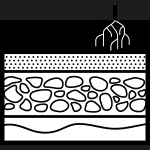 Waste material does not have to be buried to contaminate the soil, but it makes it more likely. Chemicals can leach out of pile of trash and seep into the soil easily enough without being directly mixed into it. Soil contamination and pollution affects plants down to their roots and may impact on any animals, including humans which eat those plants.
Waste material does not have to be buried to contaminate the soil, but it makes it more likely. Chemicals can leach out of pile of trash and seep into the soil easily enough without being directly mixed into it. Soil contamination and pollution affects plants down to their roots and may impact on any animals, including humans which eat those plants.
How to Prevent Overflowing Waste
 In order to prevent the overspilling of your trash, you need to organize a good, residential dumpster rental provider. It’s not easy to cope with mounds and mounds of waste materials; especially if it’s just been dumped on you or you do not have the capacity to do it yourself. Ideally food should be composted and recyclables should be recycled, but it is never as easy as that because there’s only so much compost you can make; if you even have a garden to use it on, and recycling can be complicated and fussy. Eagle Dumpster Rental gives you the flexibility to remove all of your trash, debris, organic material, scrap wood, furniture, bags, and so on in one go.
In order to prevent the overspilling of your trash, you need to organize a good, residential dumpster rental provider. It’s not easy to cope with mounds and mounds of waste materials; especially if it’s just been dumped on you or you do not have the capacity to do it yourself. Ideally food should be composted and recyclables should be recycled, but it is never as easy as that because there’s only so much compost you can make; if you even have a garden to use it on, and recycling can be complicated and fussy. Eagle Dumpster Rental gives you the flexibility to remove all of your trash, debris, organic material, scrap wood, furniture, bags, and so on in one go.
